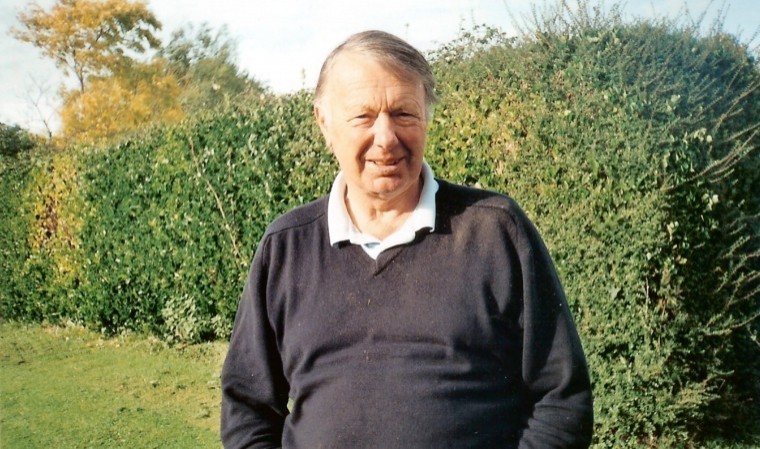In the new year a neighbour updated us about our forest in Argyll with news of the recent wintry conditions.
These regularly hit the North West at this time of year. Happily, while it was windy, it was not what the Met Office/BBC tried to make it into. So our trees survived another good growing season.
This business of naming storms is really absurd isn’t it? Perhaps it would be more sensible to wait until the event rather than scaring the pants off vulnerable folk who cannot do anything about the conditions anyway. These storms are really nothing new, particularly up north, and have always been a feature of our island weather. They are known to country folk as winter.
Donald McBean, the above mentioned neighbour who controls the vermin and keeps his experienced eye out for developments up there, commented in regard to my question about deer damage/numbers that he had a job to spot them now. Such is the rapid growth of the spruce plantations. We will look forward with great interest to see it for ourselves in the spring.
As is the case with modern more progressive methods, these trees are not planted in huge rectangular blocks, as they were before the middle of the last century. This gives wildlife the chance to live and move in and round them more easily. Today they are planted sympathetically to the contours, allowing grazing for mountain hare and deer, with excellent flight lines for the many species of bird. This attracts rather than deters the full range of species such as hawks, falcons and owls, as well as game birds along with such as oystercatchers, curlew, golden plover and various wildfowl.
Down here in West Sussex we are just about to start spring calving. Emma has run the calf unit this past year, rearing and weaning the autumn born animals by Christmas, so giving a chance to kill the bugs in pens before the new intake begins.
It is a bit of a job thoroughly cleaning the pens by hand but very necessary. The little unit of 24 individual timber compartments has now been in place and operating annually for some 43 years and has proved a very healthy environment. I’m not wishing to tempt fate but scours are no real issue, except the odd case of overfeeding milk. Pneumonia too is very rare. It’s a timber built, well ventilated building which has done the job well, and still has plenty of value left.
I imagine many readers will share my view of our environment/agriculture minister Michael Gove? He looks like an angelic boffin, very bookish and earnest. He certainly doesn’t look or behave as if he is interested in real farmers. His interests appear to be in attracting the public vote.
It is a long time since we had an agriculture minister who stood up for our industry: Fred Peart was his name. He was a Labour politician who worked tirelessly for farmers, almost against the best endeavours of his fellow socialist ministers who were not at all keen on us, or indeed what we represented. At least, not what they thought we represented. Tory Jim Prior had the right intentions but, by his time, the environmentalists were starting to overly influence rural policy and since then it’s been a one way lane, with little help from any British politicians.
Surely the time has come, with our impending split from the European Union, for a reversion whereby the food producing interests of these islands are placed in the hands of someone who acts like an agiculture minister. I’m not sure where this person will come from since the only obvious candidate, Owen Paterson, seems to be persona non grata in the corridors of power. Demoted by Cameron early in the 2010 Tory administration he is very low key these days but is, as sure as one can be, the most suitable person in government for the job.
Mr Gove appears to be more interested in the top position rather than farming matters: more interested in creating waves at the top level of politics, rather than helping farmers in preparations for the forthcoming split from Europe. Food production is going to become preeminent in the future needs of this country: its quality, its volume and its security are all vital, so the man in charge of it has to take this on board at an early stage. Remember that food doesn’t grow on supermarket shelves and producers have to be able to make a living.
One wonders at the minister’s thinking processes when he talks of “opening up the countryside” to various non farming interest groups and making grant income “conditional” on this? OK, he has extended farm payments (if the government remains) but personally I would rather have no handouts and simply rely on a fair price for our produce.
How many livestock farmers are going to have much inclination to grant additional access to the public – particularly when they arrive with their free range dogs to cause havoc, along with their nasty diseases, spread via silage and grazing contamination. It’s pretty certain not one per cent of them will bring poop scoops to clear up behind. Mr Gove’s access grants will be seen by many visitors as freedom to go where they want because farmers are getting paid to allow open access. Farmers are generally sympathetic to the needs of the environment but their support will not be wholehearted if ministers, who should be supporting farming, continue putting barriers up to deter our industry’s progress.
Unfortunately any hopes of a supportive and dedicated minister of agriculture, in the foreseeable future, disappeared with Mrs May’s recent cabinet reshuffle. Increased public access and wildflower meadows won’t feed our 70 odd million population.




